What is Pet food?
Pet food is a specialized type of food that is specifically made for pets such as dogs, cats, birds, and fish. It is formulated to provide the necessary nutrients and dietary needs for the growth, development, and overall well-being of the animal. Pet food comes in various forms including dry kibble, wet or canned food, freeze-dried or dehydrated food, and even homemade or raw diets. It typically contains a balanced combination of proteins, carbohydrates, fats, vitamins, and minerals suitable for the specific species and life stage of the pet. Pet food is widely available in pet stores, supermarkets, and online retailers.
A Guide
Title: A Guide to Choosing the Right Pet Food
Introduction:
Feeding your pet a well-balanced and nutritious diet is essential for their overall health and well-being. However, with so many options available on the market, finding the right pet food can be a daunting task. This guide will provide you with valuable information and tips to help you make an informed decision when it comes to selecting pet food.
1. Understand your pet’s nutritional needs:
Different pets have different nutritional requirements. Consider consulting with your veterinarian to determine the specific dietary needs and health concerns of your pet. Factors such as age, breed, size, activity level, and any existing medical conditions will influence their dietary requirements.
2. Read the ingredient list:
The ingredient list is a crucial aspect to consider while choosing pet food. Look for specific animal protein sources listed as the main ingredients, such as chicken, beef, or fish. Avoid products that contain fillers, by-products, or excessive grains, as they provide little nutritional value.
3. Look for a complete and balanced formula:
Ensure that the pet food you choose is labeled as “complete and balanced” or follows the guidelines set by trusted organizations like the Association of American Feed Control Officials (AAFCO). This indicates that the product contains all the necessary nutrients in the appropriate amounts for your pet’s daily requirements.
4. Consider your pet’s age and life stage:
Puppies, adult dogs, senior dogs, kittens, adult cats, and senior cats all have different nutritional needs. Ensure that you select a food designed for your pet’s specific life stage to provide them with the necessary nutrients for optimal growth, maintenance, or age-related support.
5. Take note of any dietary restrictions or allergies:
Some pets may have allergies or sensitivities to certain ingredients, such as grains, chicken, or dairy. If your pet has any known dietary restrictions or allergies, look for specialized foods that cater to their needs, such as grain-free or limited ingredient diets.
6. Pay attention to portion control and feeding recommendations:
Feeding guidelines provided by the manufacturer are essential to prevent overfeeding or underfeeding your pet. Follow the recommended portion sizes based on your pet’s weight, age, and activity level to maintain a healthy weight and prevent obesity-related issues.
7. Consider the cost:
Pet food can vary significantly in price range. While budget-friendly options might be enticing, it’s crucial to balance cost with quality. Investing in better quality food can lead to long-term cost savings by promoting better health and potentially reducing expensive vet bills.
8. Gradual transition and monitoring:
When introducing a new pet food, it’s essential to make a gradual transition over several days to prevent digestive upset. Observe your pet’s reaction to the new food, including their coat condition, stool quality, energy levels, and overall wellness. If any issues arise, consult your veterinarian for further guidance.
Conclusion:
Choosing the right pet food is a critical decision that directly impacts your pet’s health and longevity. By understanding your pet’s specific nutritional needs, carefully reviewing ingredient lists, and considering life stage requirements, dietary restrictions, and individual sensitivities, you can make an informed choice to provide your pet with the best possible nutrition. Remember to consult with your veterinarian for personalized recommendations based on your pet’s unique needs.
Exploring the Basics of Pet Food
Pet food is any commercially processed food that is specifically designed and formulated to meet the nutritional needs of pets, such as dogs, cats, rabbits, birds, and fish. It is an essential part of responsible pet ownership, as it provides pets with the necessary nutrients to maintain good health and overall well-being.
There are various types of pet food available, including dry kibble, wet canned food, freeze-dried or dehydrated food, and raw or homemade diets. Each type has its own benefits and considerations, depending on the specific dietary requirements of the pet, their age, activity level, and any underlying health conditions.
Key components of pet food include proteins, carbohydrates, fats, vitamins, minerals, and water. Proteins are crucial for the growth and maintenance of muscles, while carbohydrates provide energy. Fats are a concentrated source of energy and also aid in the absorption of fat-soluble vitamins. Vitamins and minerals are essential for various bodily processes, including bone health, immune function, and digestion.
Pet food labels often list the ingredients in descending order of their weight in the product, with the first few ingredients being the most significant. It is important to choose pet food that contains high-quality ingredients and avoids artificial additives, preservatives, and fillers.
It is also worth noting that different pets have different nutritional needs. For example, dogs are omnivores and require a balanced diet that includes both animal and plant-based ingredients. Cats are obligate carnivores and have specific dietary requirements for proteins and certain nutrients. Specialized pet foods are available for pets with specific dietary needs or health conditions, such as grain-free or hypoallergenic formulas.
In conclusion, pet food plays an essential role in providing the nutrients that pets need to thrive. It is important to choose high-quality, well-balanced pet food that meets the specific nutritional needs of the pet and consult with a veterinarian for guidance on the best diet for your pet.

+ There are no comments
Add yours